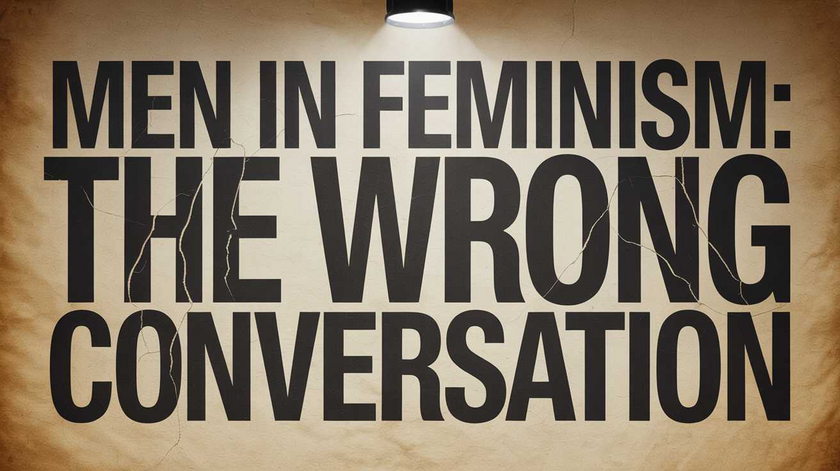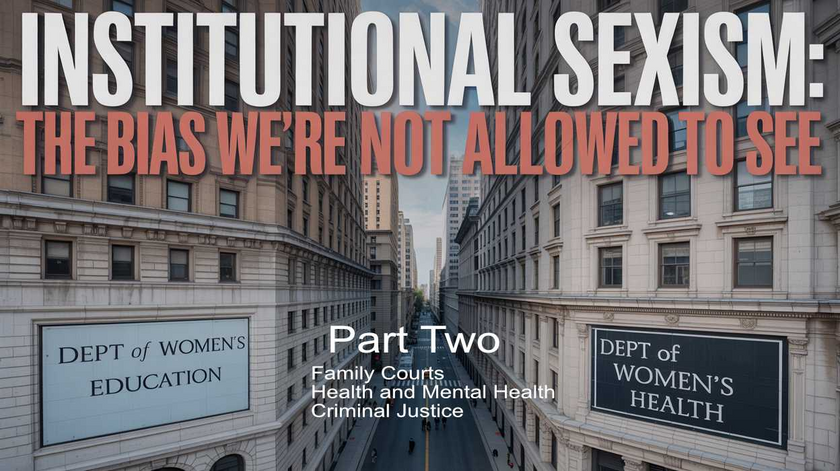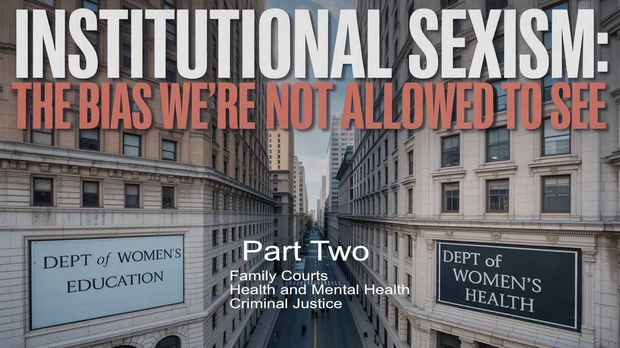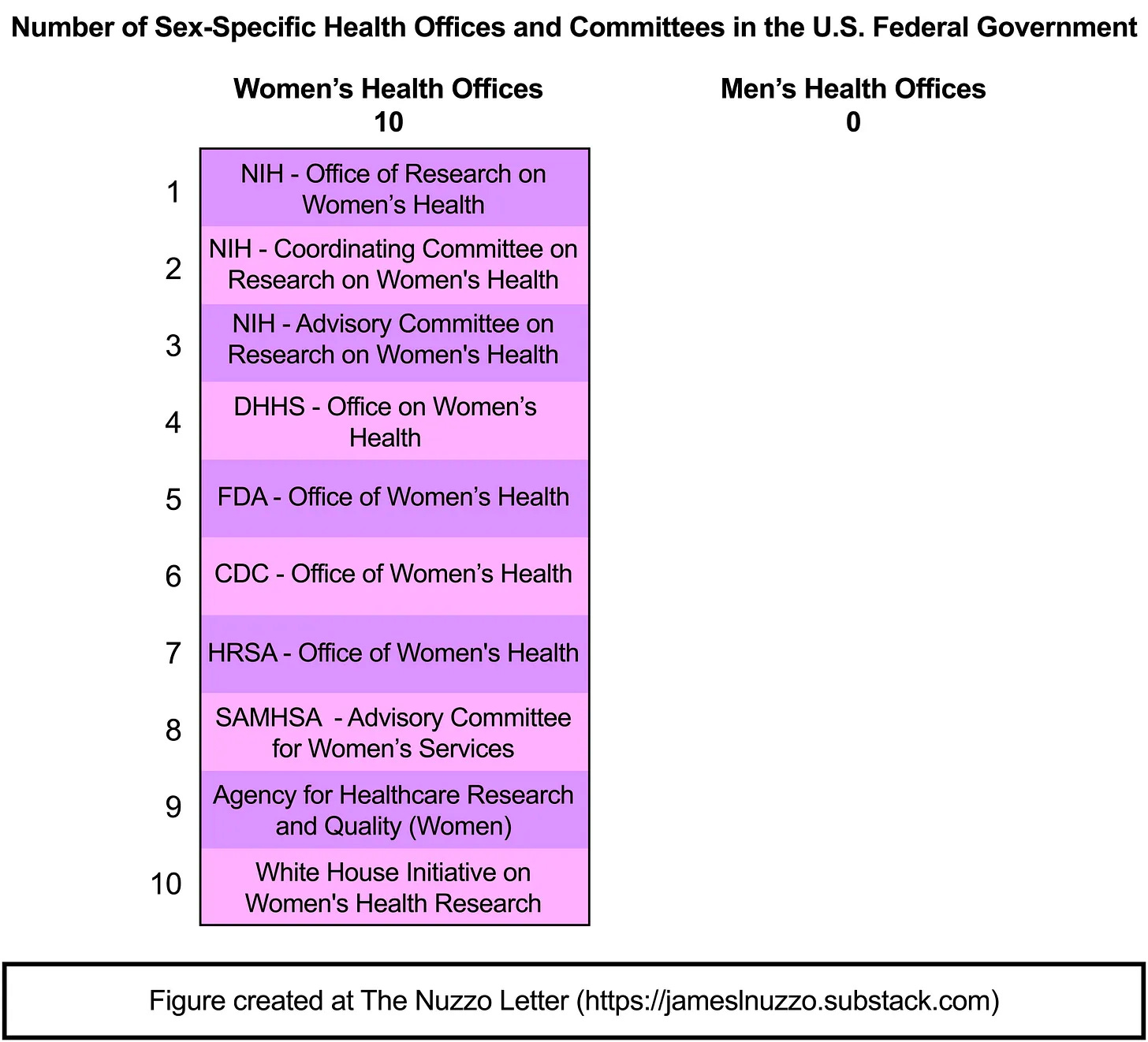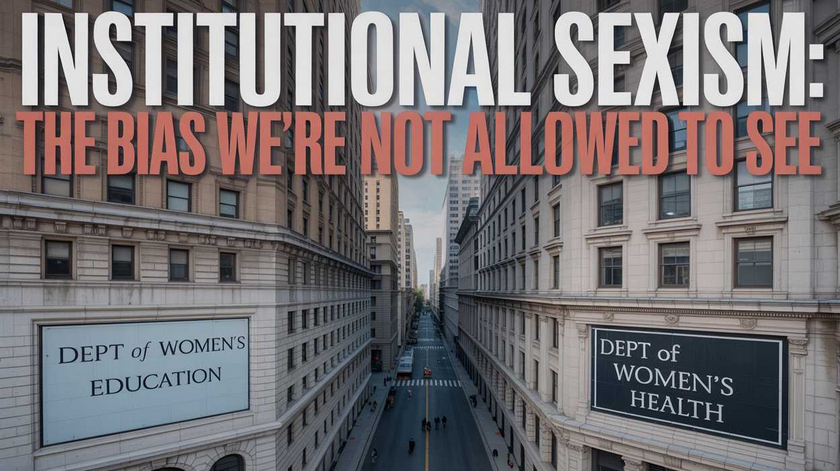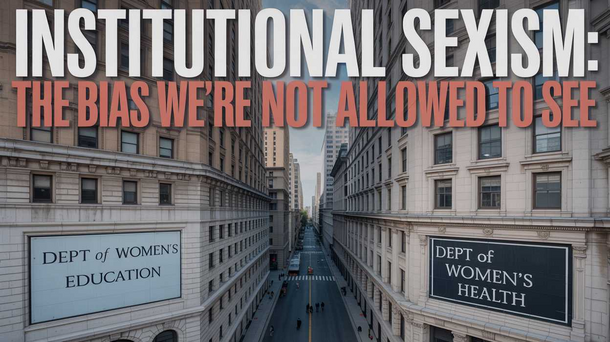Context Matters: Why This Article's Tone Is Especially Misplaced
It’s important to note that this article (Men in feminism: A self-determination perspective and goals for the future.) was published in a special issue of Psychology of Men & Masculinities, themed “Uncharted Territory” and intended to explore the possible future of research on men and boys. That context makes the tone and framing of this particular piece all the more jarring. The article isn’t a research study but an opinion-based essay focused on promoting strategies to increase male support for feminism. What? While such a topic might make sense in a feminist journal, its placement in a journal dedicated to understanding men and boys—and especially one tasked with envisioning their future—seems oddly out of place.
Rather than offering new insights into how men might thrive, heal, or participate meaningfully in future gender discussions, the article reverts to a familiar script: men are framed as the problem, their psychological needs treated as secondary, and their involvement tolerated only when it's filtered through feminist ideology.
The piece positions feminism not as a framework for mutual transformation, but as a moral litmus test — one that men must pass by internalizing guilt, accepting blame, and proving themselves worthy through re-education. Instead of exploring what it means to be a man in today’s world or considering the genuine challenges boys and men face, the article doubles down on one-sided concern. Feminism, it declares, is a “nuanced and multifaceted movement that aims to improve the lives of women.” Really?
If this is what the future of men’s studies is supposed to look like — a repackaging of guilt and exclusion — then it offers little to the men it claims to engage.
Coercion in Disguise: The SDT Contradictions
What’s especially troubling is how the article invokes Self-Determination Theory (SDT) as a framework — while blatantly disregarding its foundational principles. SDT emphasizes intrinsic motivation, rooted in three key psychological needs: autonomy (freedom of choice), competence (a sense of effectiveness), and relatedness (a feeling of connection and belonging).
Yet the article undercuts autonomy from the start by quoting Bell Hooks approvingly:
“Sexism and sexist oppression... can only be successfully eradicated if men are compelled to assume responsibility.”
Compelled? That directly contradicts the heart of SDT. Autonomy means choosing to engage out of personal conviction — not guilt, coercion, or external pressure. Framing men’s involvement in feminism as something they must do or be blamed for failing to do strips the motivation of all autonomy.
Worse still, the article insists repeatedly that even when men do participate, they should not expect empathy or appreciation. Instead, they are reminded:
“Satisfying men’s psychological needs does not mean absolving them from responsibility for ways they contribute to gender inequality and sexist oppression.”
Even when men try to help, they are portrayed as morally compromised — always in debt, never fully trustworthy. That guilt-laden framing suffocates genuine engagement.
The article also centers on women's needs exclusively, showing no reciprocal curiosity or concern about men’s experiences, values, or pain. It also relieves feminist women from any responsibility to be patient, non-judgmental or even make the men feel welcome. The goal is not dialogue — it’s correction. This is captured clearly in lines such as:
“It is not feminist women’s responsibility to make men feel welcome or to agree with men, adding emotional labor on top of gendered oppression.”
And:
“We do not mean to imply, however, that it is women’s responsibility to provide patient and non-judgmental spaces for men as this places an additional burden on women.”
So if feminist women are not responsible who is? The article recommends that rather than feminist women helping men understand feminism they should farm out that task to male feminists. This outsourcing of the task to feminist men — rather than encouraging feminist women to engage directly — creates a dynamic where emotional safety is offered only if men are already ideologically compliant:
“Women have good reasons for not trusting men immediately.”
There is no vision of mutual growth or shared humanity. Men are to be “retrained” by others — not included as equals. This fails to model dialogue or mutuality and instead sets up a hierarchy: feminist women as gatekeepers of virtue, men as potential liabilities who must prove themselves.
The result is a message that frames men as morally obligated to support women because of their supposed complicity in oppression, offers no space for their own stories or struggles, and then bars them from expecting even the basic empathy that would allow for meaningful exchange.
This isn’t just intellectually inconsistent — it’s emotionally cold and strategically self-defeating. It asks men to invest in a movement that clearly does not care whether they feel welcomed, understood, or respected. In doing so, the article violates not only the principles of SDT, but any realistic pathway toward lasting engagement or authentic partnership.**
A Better Way Forward: Respect, Not Re-education
For more than 50 years, our public institutions, media, and educational systems have focused intensely on the needs and struggles of women and girls. Perhaps it’s time we reverse the lens — to spend the next 50 years focusing just as deeply on boys and men.
Imagine this: billions of dollars dedicated to researching male development, crafting education and healthcare systems tailored to boys’ needs, launching public campaigns about male well-being, creating commissions and councils that advocate solely for men’s voices. And while all this unfolds, women and girls are politely asked to wait on the sidelines — to watch without participating, without complaint, as the cultural spotlight shifts away from them.
Would that feel fair?
For many women, such a proposal would feel outrageous — as if their lives, their needs, their experiences were being brushed aside. And that reaction is exactly the point.
Because for the past half-century, that is precisely how many men have felt: ignored, blamed, and left out of the conversation. While women were told “you matter,” men were told to man up. While girls’ self-esteem, safety, and education were prioritized, boys quietly fell behind — in school, in mental health, in family life. And yet, few women stopped to ask: What about the boys?
If the idea of sidelining women now feels wrong, then perhaps it’s time to acknowledge how wrong it was to sideline men for so long. The belief that men were powerful oppressors who deserved no empathy was a cultural myth — one that too many accepted without question. And the damage of that myth is now all around us.
We don’t need to swap one form of exclusion for another. What we need is balance. We need to understand that men have struggles, too — and they deserve just as much care, compassion, and attention. Real progress doesn’t come from focusing on just one sex. It comes from listening to both.
Let’s stop pretending that empathy is a limited resource. There’s enough to go around. But first, we have to be willing to offer some to the half of the population who has gone without it for far too long.
Journal
https://www.apa.org/pubs/highlights/spotlight/future-boys-men-masculinities
Article
https://psycnet.apa.org/doiLanding?doi=10.1037%2Fmen0000480
